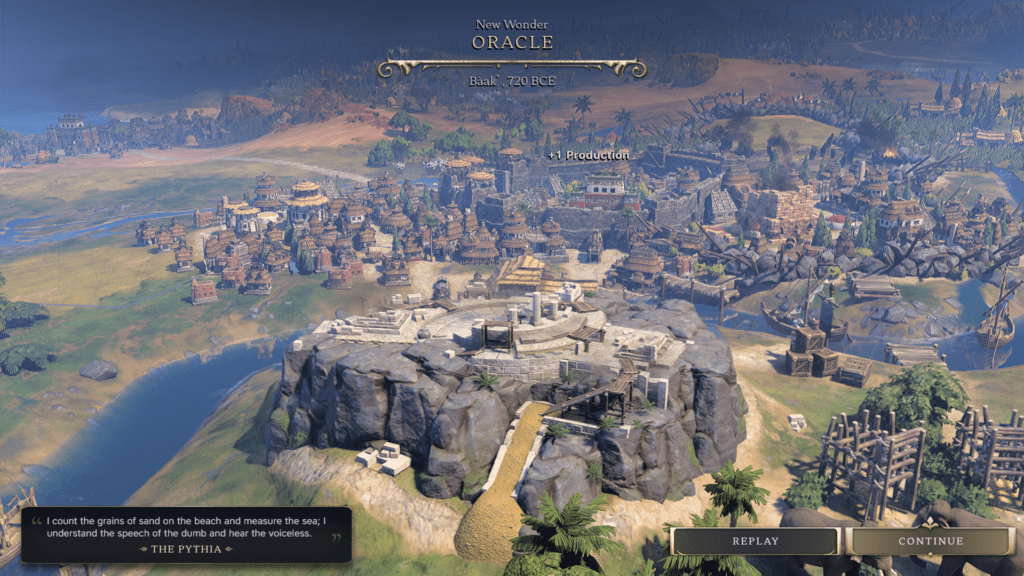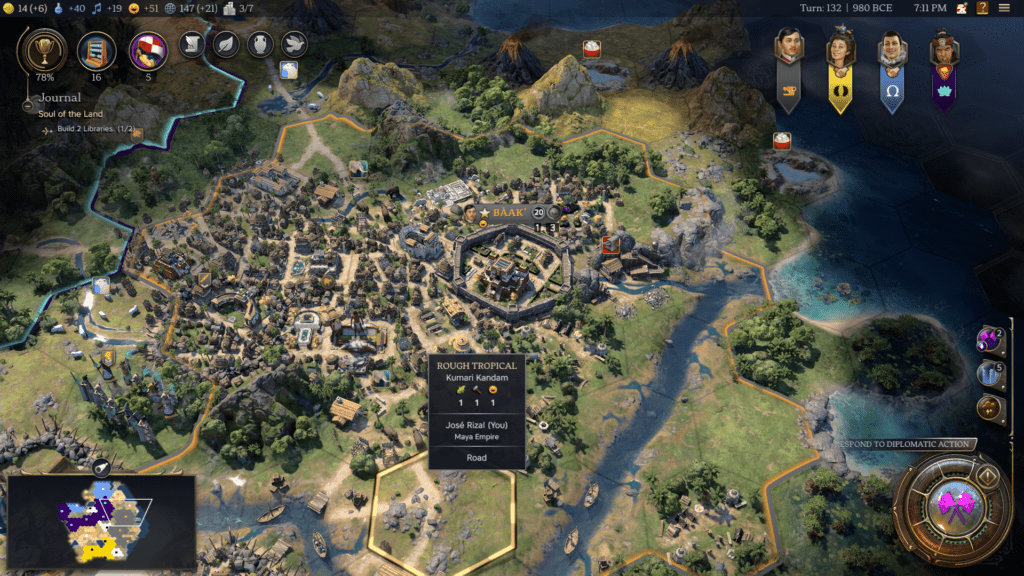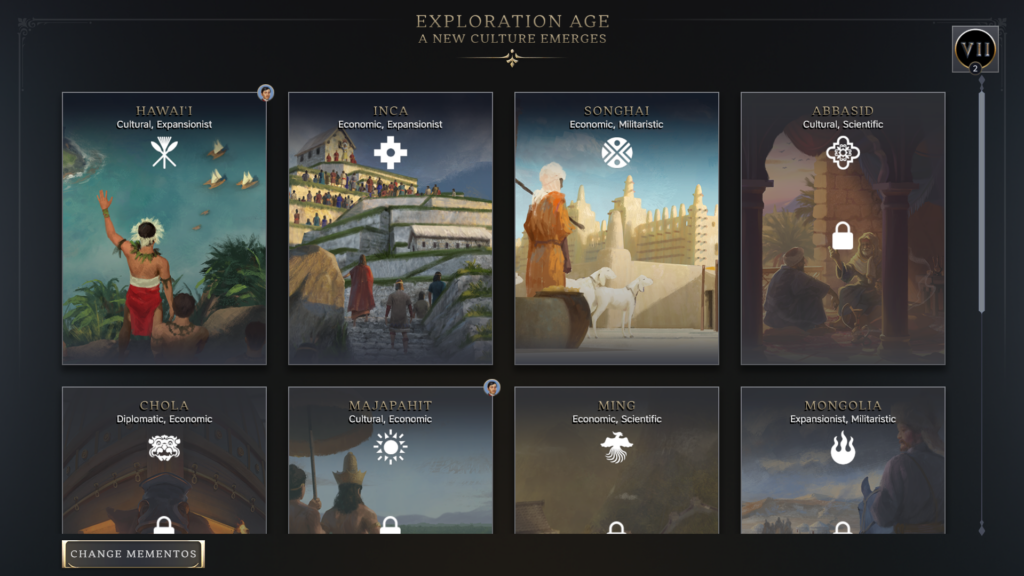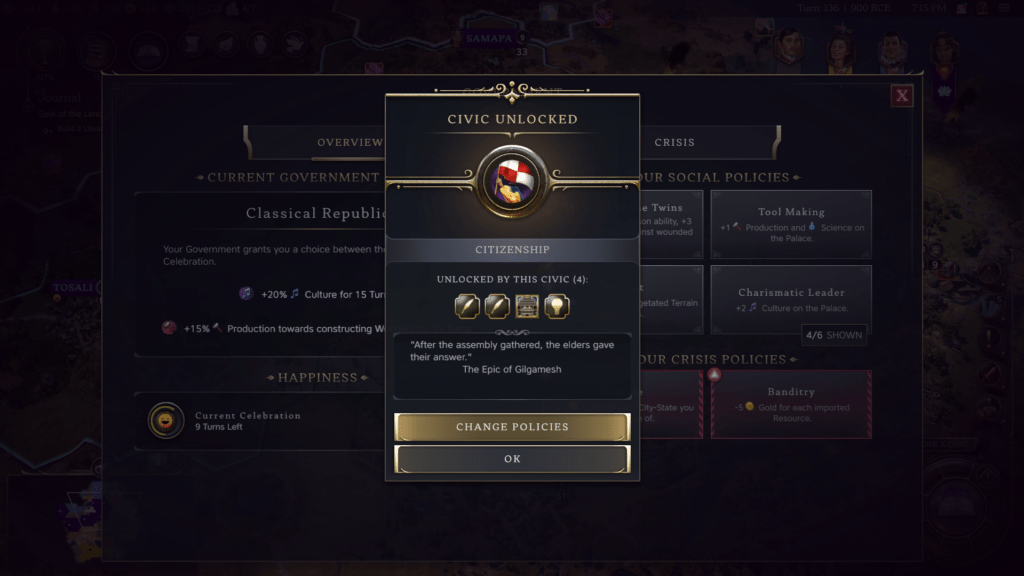After a decade of waiting, we finally got a sequel to one of the best titles in the franchise, Civilization VI. The question is, can Civilization VII beat out its predecessor?
At its core, Civilization VII maintains the familiar turn-based gameplay that fans love while introducing some changes in the hopes of freshening the experience. The core gameplay is still relatively the same in Civ VII. Players still work to build their empires from the ground up, balancing economy, diplomacy, science, and military. However, a notable addition is the redone “Age System.” This system encourages players to not only progress through historical eras but also offers unique bonuses and challenges that adapt based on player choices and actions.
However, the new system is not for everyone. With the new Age system, you change your empire into another reskinned version of it instead of seeing your civilization grow over the years. I, myself, am not a fan of changing my empire every time the game progresses to the different ages and it takes away from the connection you form to your civilization.
Civilization and Diplomacy: A New Dynamic

One of the biggest standout features of Civilization VII is its overhauled diplomacy system. It’s once again a mixed bag. On one hand, it’s simple enough for new players to pick up. But on the other hand, it seems like a much more dumbed down version of the politics system in VI. I personally prefer the system in VI just because it had a lot more weight to it. Picking an option actually had consequences and influenced how you progress.
In the new one, players can now forge alliances, engage in negotiations, or even engage in backstabbing tactics. While it does lead to deeper diplomatic gameplay that feels alive and reactive, all it does is give you either more influence or culture.
One nice addition is the introduction of “Civic Policies”. It allows players to tailor their civilizations more directly to their playstyle. Choosing policies that align with your strategy—be it cultural, military, or scientific—adds a personalized touch to your empire-building experience. It also encourages experimentation with different playstyles, leading to countless ways to approach each game.
Graphics and Presentation: A Stunning Visual Story
Visually, Civilization VII is a feast for the eyes. The stunning graphics and beautifully designed maps are nothing to sneeze at but I feel it could have been better executed. The land and cities feel lifeless and monotone rather than brimming with life and movement.

On a positive note, each civilization is depicted with attention to detail; from their unique units and buildings to the vibrant landscapes that change dynamically over time. The animations and graphics are a step above the other titles but that alone doesn’t carry the game.
The user interface also received a makeover. While it does provide a sleek, modern look that enhances the overall experience, it feels way too simplified. I admit that it’s significantly more new-player friendly, but it does slightly cheapen the feel of the game for veterans. It can also get a little annoying with having a prompt pop up every minute asking you to make a pre-set decision like a choose-your-own-adventure story.
Cultures and Civilizations: A Diverse Selection
Civilization VII brings a diverse array of civilizations and cultures to choose from, each with unique strengths, units, and abilities. Whether you want to lead the ancient Romans, the samurai of Japan, or a new civilization by design, there’s something for everyone, each with a rich historical context that enhances the immersion.

The main gripe here is that your leaders have absolutely no connection to your civilization. Why does Jose Rizal go with the Mayan empire? Why is Machiavelli leading Greece? Sure, it’s quirky and a fun little detail to joke around with, but it suspends the historical aspect of the game. Even more so when your civilization changes but your leader stays the same.
On a positive note, the game does expand on eras by including new civilizations that reflect modern and historical cultures that have shaped our world. This focus on diversity and representation not only enriches the gameplay but also fosters an inclusive gaming environment.
Final Thoughts: One Step Forward Two Steps Back
In conclusion, Civilization VII somewhat captures the essence of what makes the series beloved but at the cost of some aspects. While it boldly pushes boundaries with innovative features, it changes features in the game that nobody thought needed fixing. It’s understandable since it’s a new game and wants to be different from Civilization VI, but they could have focused on different aspects like innovating empires past the modern age. The deep strategic gameplay, new diplomacy, and diverse selection of civilizations does ensure that both newcomers and long-time fans will find plenty to enjoy, but fans of the series may find it too different for their liking.

At the end of the day, the game is still a fun RTS world building game. It’s strategic and lets you explore all the different routes and possibilities but it’s not any better from Civilization VI. What it is, is an entirely different game from its predecessor and I can respect that. It’s not terrible but it’s nothing special unfortunately as it lacks the spirit and essence of what made Civ games fun in the first place.
Check out these articles when you’re done!





